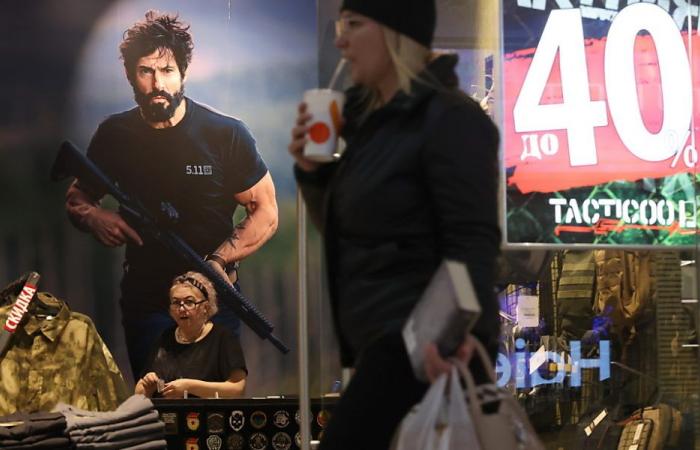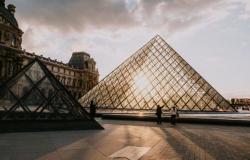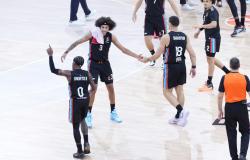In Moscow, luxury Western products remain on sale in the many boutiques in the city center, a reality which contrasts with the announcements of departure made in 2022 in retaliation for the Russian assault on Ukraine.
“I don't see any particular change. Some brands have left, like Chanel, Dior or Hermès, but others have stayed. Brunello Cucinelli, for example,” says Natalia, a 51-year-old dentist, strolling through the prestigious shopping center Goum, a few meters from the Kremlin walls on Red Square.
“I don't care about the brands that left. They thought they were isolating us? It's ridiculous,” says Sergei, an elegant 61-year-old retiree, as he leaves a store.
On the shelves, he claims to find what he bought before February 2022.
“The brands I like are still there. I ordered my suits from Isaia, I can still do that,” he rejoices.
“Pure hypocrisy”
After the launch of the Russian offensive against its Ukrainian neighbor, several Western brands and luxury groups, such as Chanel, Hermès, LVMH and Kering, announced their intention to leave the Russian market. Question of international image.
But almost three years later, their well-known logos still adorn the shops in the center of Moscow, a bustling megalopolis of some 13 million inhabitants.
In fact, several of these foreign luxury houses have kept their prestigious premises – now closed – a stone's throw from the Kremlin. Probably in the hope of returning when the conflict is over.
Nothing prevents their products from ending up on the Russian market.
“Their announced departure is pure hypocrisy,” said a French businessman, who continues to sell his luxury products in the Russian capital, on condition of anonymity.
“Even if their stores are officially closed, these brands continue to sell their products to Russians via + marketplaces +”, that is to say online sales sites, as well as intermediaries such as department stores, notes -he.
A few hundred meters from Goum, in the luxurious Tsoum shopping center, “the choice is smaller than before, but everything is possible,” assures Elena, 38, marketing manager for an underwear brand.
“The luxury brands are still there. And our regular customers too. Demand has not decreased,” adds a saleswoman from Tsoum, in front of a Burberry clothing counter.
The Tsoum application even allows you to buy clothes from Prada, Saint Laurent or Alexander McQueen, which have officially left Russia, online at “more competitive prices than in Dubai”, according to an online advertisement.
Return trips to Dubai
Since 2022, the emirate has become the destination of choice for wealthy Russians to spend their vacations and do their shopping.
“In Dubai, sales of luxury products have exploded” in three years, says the French businessman interviewed by AFP.
Very wealthy Russians also go for luxury shopping in Türkiye and Kazakhstan, countries with which there are numerous air connections.
But sales figures for luxury products in these countries are impossible to verify, as most companies do not detail their turnover either by country or by brand.
This phenomenon is good business for “buyers”, a term which designates “those who travel abroad to buy clothes and luxury items to order”, explains Elena, the marketing manager.
“We adapted quickly,” she says.
The term “buyer” echoes the 1990s, when Western brands were not present in post-Soviet Russia.
These ingenious suppliers then traveled back and forth between Moscow and Western Europe to bring luxury clothing to their wealthy clients.
Some “buyers” even have direct “contracts with large boutiques or shopping centers” abroad, specifies Andreï, 52, a Moscow stylist who deals with high-end clients.
According to a well-established scheme, “they go to Milan, Paris or London and order furniture, crockery, jewelry or clothes there”, before bringing them back and reselling them in Russia, he explains.
A sign, according to him, that “brands want to continue working” with Russian customers.
To the point of one day considering their official return to Russia? According to Andrei, “it’s only a matter of time.”
This article was automatically published. Sources: ats / awp / afp






